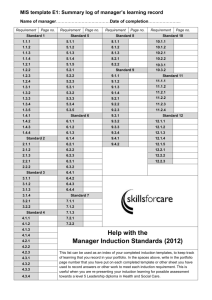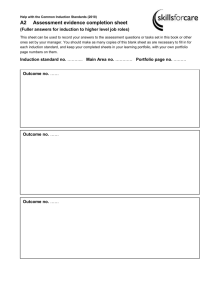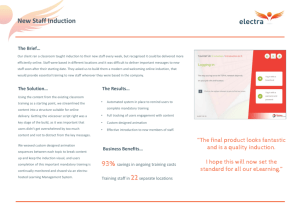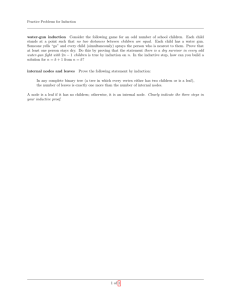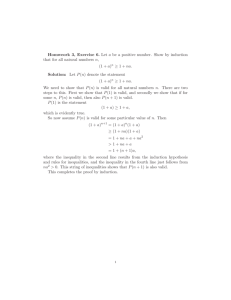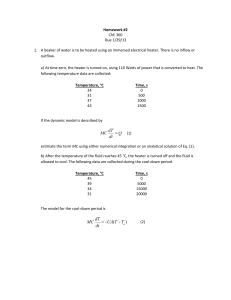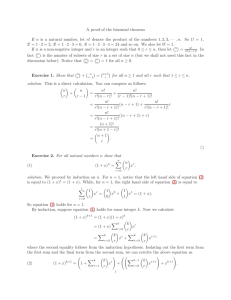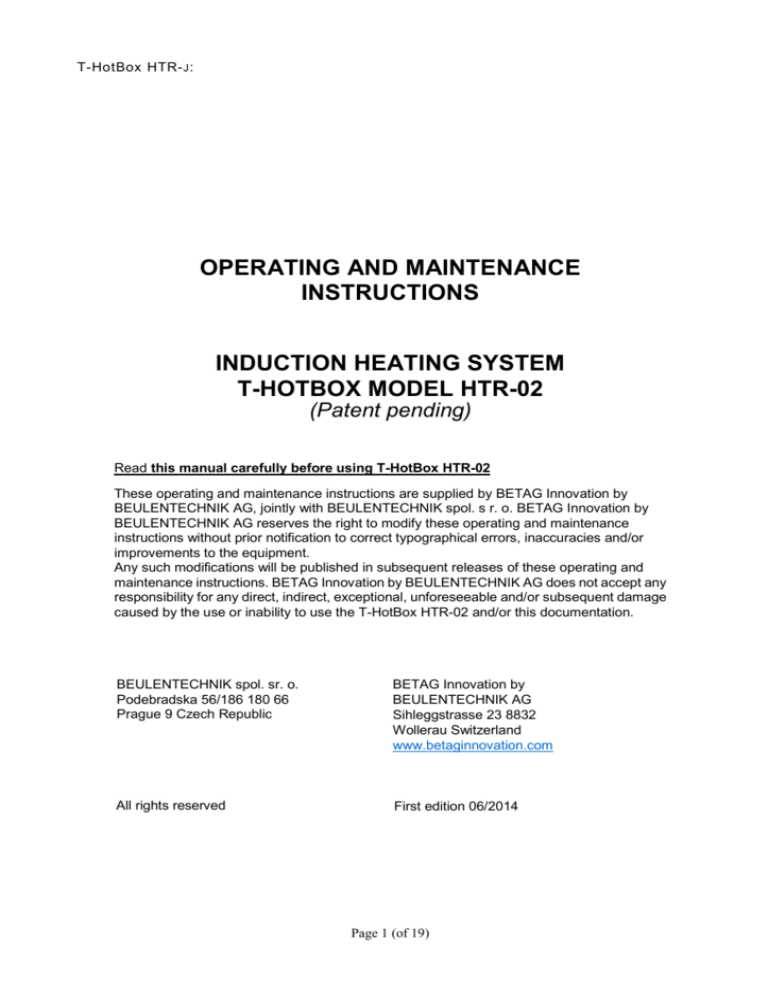
T-HotBox HTR- J :
OPERATING AND MAINTENANCE
INSTRUCTIONS
INDUCTION HEATING SYSTEM
T-HOTBOX MODEL HTR-02
(Patent pending)
Read this manual carefully before using T-HotBox HTR-02
These operating and maintenance instructions are supplied by BETAG Innovation by
BEULENTECHNIK AG, jointly with BEULENTECHNIK spol. s r. o. BETAG Innovation by
BEULENTECHNIK AG reserves the right to modify these operating and maintenance
instructions without prior notification to correct typographical errors, inaccuracies and/or
improvements to the equipment.
Any such modifications will be published in subsequent releases of these operating and
maintenance instructions. BETAG Innovation by BEULENTECHNIK AG does not accept any
responsibility for any direct, indirect, exceptional, unforeseeable and/or subsequent damage
caused by the use or inability to use the T-HotBox HTR-02 and/or this documentation.
BEULENTECHNIK spol. sr. o.
Podebradska 56/186 180 66
Prague 9 Czech Republic
BETAG Innovation by
BEULENTECHNIK AG
Sihleggstrasse 23 8832
Wollerau Switzerland
www.betaginnovation.com
All rights reserved
First edition 06/2014
Page 1 (of 19)
T-HotBox HTR-02
TABLE OF CONTENTS
WARNINGS AND SAFETY MEASURES
............................ :
GENERAL INFORMATION ON HOTBOX HTR-2'
............................ :
KEY TECHNICAL PARAMETERS
............................ "
PACKING .................................................................................................................... "
UNPACKING .................................................... ....................................................... "
STORAGE CONDITIONS ...................................... .................................................. 8
COMMISSIONING, SAFETY MEASURES AND ELECTRICAL CONNECTIONS .......... 8
OPERATION AND CONTROL OF THE EQUIPMENT................................................... S
TERMINATION OF EQUIPMENT OPERATION ..........................................................1C
USE OF INDIVIDUAL WORKING TOOLS................................................................... 11
APPLICATION LIMITATIONS ..................................................................................... 14
OPERATIONAL ENVIRONMENT ............................................................................... 14
HANDLING................................................................................................................. 14
MAINTENANCE ......................................................................................................... 14
PREVENTIVE MAINTENANCE .................................................................................. 15
ERROR MESSAGES/PROTECTIVE SYSTEM ........................................................... 15
SPECIAL MAINTENANCE .......................................................................................... 16
EMERGENCY ............................................................................................................ 17
WARRANTY ............................................................................................................... 17
CLAIMS...................................................................................................................... 17
DISASSEMBLY-WASTE DISPOSAL .......................................................................... 18
TROUBLESHOOTING................................................................................................ 18
STANDARD, OPTIONAL ACCESSORIES .................................................................. 19
COPYRIGHT .............................................................................................................. 19
DECLARATION OF COMPLIANCE ............................................................................ 19
Page 2 (of 19)
T-HotBox HTR-02
WARNINGS AND SAFETY MEASURES
WARNING!
Electric shock hazard!
T-HotBox HTR-02 is designed for professional use in the car repair industry. It is not
intended for home use. It can be used in both vehicle repair shops and garages. Any other
use or use of the equipment contrary to the operating and maintenance instructions may
result in an injury to the operator and/or damage or destruction of the equipment.
Only qualified personnel may carry out the electrical connection of the T-HotBox with mains
supplies in compliance with applicable regulations.
Any personnel operating the equipment must possess thorough knowledge of and practical
experience in the use of an induction heater, as well as in methods of heating metal vehicle
components without damaging nearby parts. Operators must acquaint themselves with and
understand these operating and maintenance instructions prior to using the induction heater.
Unauthorised persons shall not be allowed to enter the area where metal vehicle parts are
heated. Only one authorised person may operate the induction heater at any one time.
WARNING!
Always use protective goggles with side shields or protective facial shields. Use dry,
thermally resistant gloves and dry working clothes. Metal heats up very quickly with a risk of
burns to fingers and palms when removing objects from hot metal surface.
Do not touch working parts of the equipment during heating.
Allow cooling period before handling parts or equipment.
The induction heater heats nearby metal objects very quickly and can cause serious burns or
even ignite clothing. Bear that in mind and make sure that the operator's clothing is free of
any metal objects, such as wristwatches, jewellery, necklaces keys, belt buckles, coins,
metal buttons, zippers, etc.
Do not use the induction heater in an environment containing conductive dust. h'3r ambient
humidity, high levels of moisture and/or in an explosive environment.
Do not place the equipment on flammable surfaces or in their vicinity.
Always make sure to have a filled fire extinguisher nearby. Always use a r.ce r •"■e
extinguisher suitable for extinguishing materials that may be present'- t-e area.
Flammable objects and materials must be placed at a sufficient d'Sta-:e t-e working area
where the induction heater is used
Do not use the equipment near degreasing, cleaning and/or painting facilities.
Corresponding respiratory protection must be chosen and used to protect the operator
against the effects of dangerous gases, fumes and/or particles released by melting adhesive
under heat. Respiratory masks provide protection against respiratory risks: fumes or gases,
aerosols and airborne dust. A suitable mask and a filter are to be used in accordance with
the specific toxic product and its concentrations. Filters must be replaced frequently.
Paae 3 (of 1^
T-HotBox HTR-02
Always have a trained watchperson nearby. Fumes and gases released by heating of
materials can lower oxygen level and cause an injury or death.
When heating, especially in cases when heating galvanised, cadmium plated, varnished or
blackened sheet metal, fumes may be generated. Ensure adequate ventilation and
extraction of heating fumes from the working area. Use a suitable respirator in case of
insufficient extraction
It is very dangerous to heat containers and tanks, in which liquids and gases were stored
before the heating. Do not heat aerosol containers or paint containers. The heat generated
by the induction heater may cause the containers to explode.
Do not use the induction heater near airbags. The heat generated by the induction heater
may ignite the airbag propellant and unexpected airbag activation. Ascertain the accurate
location of any airbag in the repaired vehicle using the corresponding vehicle manual.
When installing, checking or maintaining the equipment, always disconnect it from the main
supply.
Do not use cables with damaged insulation, insufficient cross-section or loose connectors.
Avoid placing cables near heat sources, oils and grease, or sharp edges. Replace all cables
with damaged insulation for new ones.
The induction heater contains parts with movable power supply. Always consider uneven
weight distribution of the induction heater. Always follow safety procedures preventing the
occurrence of hazardous situations.
Keep proper footing and balance at all times.
Allow cooling period
The equipment must always be placed in a way ensuring sufficient air supply to the built-in
fan. Ventilation apertures must be kept clean.
The working area must be clean and well lit.
The equipment is fitted with overheating protection. Working tools do not have this
protection.
The equipment also contains several additional protection systems.
Do not leave the equipment unattended if switched on.
Unplug induction heater from the power supply outlet or cord when not in use.
WARNING!
Persons using a cardiac pacemaker or any other kind of electronic or metallic
surgical implant, or persons with a heart condition must not operate the mobile
induction heater or come near the induction heater when operated.
GENERAL INFORMATION ON T-HOTBOX HTR-02
Page 4 (of 19)
T-HotBox HTR-02
The microprocessor-controlled T-HotBox HTR-02 is designed for heating of metal parts of
vehicles without damaging adjacent components. It is easily portable, powered by a
single-phase 230 V/50 Hz net. It is highly versatile and suitable for a broad range of
applications. Depending on accessories.
-
Paintless dent repair (PDR)
Heating of rusted bolts and nuts
Heating of rusted bolts and nuts on the suspension or steering
Removing striping, emblems, decals and foils
and other applications
T-HotBox HTR-02 is designed to heat up all magnetic conductive materials using
concentrated magnetic field at the end of the inductor. The magnetic field alternates at a
frequency of approx. 50 kHz. The magnetic field creates eddy currents in the material with
electric resistance causing the material to heat up. Generally, it applies that the more easily
magnetized a substance is, the greater the heat developed in it. That is why induction heater
heats ferrous metals and their alloys readily, but has no effect on glass, plastics, wood, cloth
and other non-conductive materials. It is not recommended to apply the device to
aluminium. The induction heater heats up brass, aluminium and its alloys considerably less
than steel.
This equipment is manufactured in accordance with the following regulations and guidelines:
2006/95/EC
Low voltage Directive
2004/108/EC
Electromagnetic Compatibility Directive
93/68/EEC
CE Marking Directive
98/37/EEC
Machinery Directive
EN 55 011 class В Radiated E-field emissions
EN 55 011 class BConducted emissions
EN61000-6-2 Electromagnetic compatibility (EMC) - Part 6 Ge-5' :
Part 6-2: Immunity standard for industrial envrcr~5"5
-
T-HotBox
HTR-02
EN61000-6-4
EN 61000-4-2
EN 61000-4-3
EN 61000-4-4
EN 61000-4-5
EN 61000-4-6
EN 61000-4-11
EN 61000-3-2
CSN 33 2000-1
IEC 60364-1 EN
61140 EN 175
EN 60204-1
Electromagnetic compatibility (EMC) - Part 6: Generic standards - Part
6-4: Emission standard for industrial environments Electromagnetic
compatibility (EMC) - Part 4. Testing and measurement techniques Part 4-2: Electrostatic discharge immunity test
Electromagnetic compatibility (EMC) - Part 4: Testing and
measurement techniques - Part 4-3: Radiated, radio-frequency,
electromagnetic field immunity test Electromagnetic compatibility
(EMC) - Part 4: Testing and measurement techniques - Part 4-4:
Electrical fast transient/burst immunity test
Electromagnetic compatibility (EMC) - Part 4: Testing and
measurement techniques - Part 4-5: Surge immunity test Reference
Electromagnetic compatibility (EMC) - Part 4: Testing and
measurement techniques - Part 4-6: Immunity to conducted
disturbances, induced by radio-frequency fields Electromagnetic
compatibility (EMC) - Part 4: Testing and measurement techniques Part 4-11: Voltage dips, short interruptions and voltage variations
immunity tests Electromagnetic compatibility (EMC) - Part 3: Limits Part 3-2: Limits for harmonic current emissions (equipment input
current < 16 A per phase)
Electrical installations in buildings - Part 1: Scope, purpose and basic
frame of reference
Low-voltage electrical installations - Part 1: Fundamental principles,
assessment of general characteristics, definitions Protection against
electric shock - Common aspects for installation and equipment
Personal protection - Equipment for eye and face protection during
welding and allied processes
Safety of machinery - Electrical equipment of machines - Part 1:
General requirements
Page 6 (of 19)
T-HotBox HTR-02
KEY TECHNICAL PARAMETERS
INPUT:
Voltage
230V ~ +10%
Frequency
50/60 Hz
Fuse
T 6,3 A
Power
max. 1100 VA
Power Factor
> 0,95
OUTPUT:
Voltage
Frequency
Power
max. 250 V rms
50 kHz
max. 1000 W
UNIT:
Dimensions
Weight
Ambient temperature
Relative air humidity
210»110X115 mm (with handle)
1.3 kg (unit only)
5-40 C
< 90 %
Note: Information in this manual is not binding reflecting the continuous development of the product,
its technical parameters, dimensions and weight.
PACKAGING
The induction heater itself is packaged in a plastic case. Individual working tools are
packaged separately in paper boxes.
When requested it is possible to pack the device and tools in a plastic foil and wooden
overseas crate, including strapping (if the crate is to be shipped in a container).
The equipment must be packaged and secured for transportation in a manner ensuring
protection from moisture and vibrations during transport. It is recommendec to use an inner
polyethylene packaging with a welded seam for longer transport routes or extended storage
of the equipment. The outer packaging must be rigid enough and labelled with shipment
signs and marks "Fragile”, “Avoid moisture et: - packed in this manner and secured against
shifting, the equipment can be transported using all common enclosed means of transport.
Vibrations during transport must not exceed values prescribed by relevant shipping tests.
UNPACKING
- Remove individual parts of the wooden crate (if used)
- Remove the strapping
- Remove the device from the plastic case
- Remove individual tools from their paper boxes
- Check the delivery for completeness according to the delivery bill
- Visually check the device and tools for any signs of damage incu"e; transport
- If the delivery is not complete or if any of the components is damaged, contact the
equipment supplier
- When returning the equipment to the supplier for repairs, it must be placed in the original
packaging
WARNING!
Keep the packaging materials - wood, nails, plastic parts, paper packaging, etc. - out of the
reach of children, as it may be a source of risk.
Separate packaging materials and dispose of it in accordance with relevant regulations.
STORAGE CONDITIONS
Store the device and its accessories in a dry, covered place, under temperatures between -5
°C and +60 °C. Do not place the equipment near heat sources.
Paae 7 iof l4 ■
T-HotBox HTR-02
When handling the equipment, pay extra attention to avoiding shock, even to packaged
device and tools as that could cause damage.
COMMISSIONING, SAFETY MEASURES AND CHECKING ELECTRICAL
CONNECTIONS
Open the box, remove the induction heater and accessories and check for completeness.
NOTE!
The induction heater and tools can be switched on only after attaining the ambient
temperature. Wait at least 30 minutes, i.e. after all condensation on the box and electronic
components of the equipment evaporates.
Pay attention to avoid damage to connector on the front and back panels when handling the
induction heater and tools.
NOTE!
Before connecting the induction heater to the power supply, make sure that the voltage and
frequency of the local power supply network, including the circuit breaker (min. 16 A, type B)
conform to the standard CEI EN 6024/1 as well as the data on the type plate of the device,
and that the electrical installations have been made in accordance with the relevant
regulations. Electrical safety of the equipment is secured by using a three-conductor power
cord with a protective conductor.
NOTE!
Installation and the first switching on of the induction heater must be carried out by a
qualified person in accordance with the relevant regulations and instructions contained in
this manual.
Switching on: Turn the main switch on front panel to the ON position. Red light in switch will
light up, indicating that the device is under power. The machine prepared for work will emit
standby sound signal double beep every 5 seconds.
It is possible to turn off the standby sound signal if you turn on the device with control knob
set on the position 4s.
Switching off: Turn the main switch to the OFF position to turn the ” c _ : t - e s : e - and the
working tool off. Unplug the power cord from the power socket Ое:з" t'e tool connecting
cable.
Before every use of the equipment, check correct setting and proper condition of the
equipment.
CAUTION!
The case of the induction heater complies with enclosure protection rating IP 21. It is
therefore not permitted to use the equipment in a humid environment.
CAUTION!
Should the user modify, adjust or change the device or any of its accessories in any way, or
integrate it in another device, the manufacturer shall be relieved of any responsibility and the
user must remove the CE marking from the equipment.
Any breach of the above instructions may put the T-HotBox HTR-02 operator at risk
and/or cause damage to property.
OPERATION AND CONTROL OF THE EQUIPMENT
Please see also our YouTube channel and look for T-Hotbox PDR.
www.youtube.com/user/BETAGInnovation
Page 8 (of 19)
T-HotBox HTR-02
1
CONNECTOR FOR TOOL CABLE
2
TIME/POWER CONTROL KNOB
3
MAIN SWITCH WITH RED LIGHT
4
HANDLE
Page 9 (of 19)
T-HotBox HTR-02
Select a suitable working tool depending on the job to be performed and connect it to the
induction heater using the tool cable. One end of the tool cable is plugged to the working tool
and the other to the “TOOLS” socket on the front panel of the device. Only use working tools
which are made for the T-Hotbox and have a yellow point marked near the connection plug.
Using the rotary control knob on the front panel select the desired time or output power:
Time mode:
Positions on the left side of the control knob correspond to the output time when the machine
is working on 100% of power. You can select the duration time In the range of: 0.5s, 1s, 1.5s.
2s. 2.5s. 3s. 4s and infinity (“). If you press the button and keep pressing it, the device will
switch off heating after the selected time has passed. If you release the button and press
again the time will count again from the beginning.
Power mode:
Positions on the right side of the control knob correspond to the output power of the
machine. In this mode the machine is working over infinite time. You can select from
percentage values of power: 20%, 40%, 60%, 80%,100%.
Place the working tool near the place or object to be heated. Heating starts after the control
button on the working tool is pressed. Simultaneously, the machine will start producing quick
tone switching sound. In power mode or infinity time (°°) the working tool will continue to heat
the material for as long as the button remains depressed. Use individual working tools in
accordance with instructions provided in the chapter "Use of individual working tools” below.
If an audible alarm sounds (continuous speaker sound), release the control button
immediately. The equipment switches off automatically in certain cases using the overload
protection, see chapter “Error messages / Protective systems"
TERMINATION OF EQUIPMENT OPERATION
After completion of work, turn the main switch to the off position. Leave the device and the
tool(s) used to cool sufficiently, for at least 25 to 30 minutes. Then unplug the power cord
from the socket. Unplug the working tool cable. Place the device and working tools in to the
plastic case.
USE OF INDIVIDUAL WORKING TOOLS
Page Ю (of 19)
T-HotBox HTR-02
1
SMALL HEAT PEN
2
C BLOCK
SMALL HEAT PEN
The Small Heat Pen is designed to heat a small concentrated area of a sheet metal. The
power button is located directly on the tool itself. It is ideal for the heating of small areas on a
car body. Its main purpose is the removal or reduction of small, shallow dents or blemishes
without damaging the paint. Although the risk of damaging the paint is very high, if the
heating is done too long.
It can also be a helpful tool to any PDR (paintless dent removal) technician as with it he can
bring up general lower areas with it.
In the dent removal application the concentrated heat will expand the metal and bring it up.
This only works on soft dents. In some cases the dent can reappear once the metal has
cooled off.
The following has to be made aware of:
-
-
Page 11 (of 19 )
Don’t push down with the tool during the operation, as this might create a larger
dent, due to the fact that the metal is soft once it is heated.
Don’t heat too long. As this might and will burn the paint. It is best to test it first on
a similar panel. Normally .5 sec setting and even 1 sec is ideal.
But there might be the case that even at this setting that the paint might be
damaged, due to the way the material is build up beforehand. We con't take any
responsibility for any paint damage.
It doesn’t work on a negative curved area
It doesn’t work on an area which has a glued brace behind it.
If the dent is too large then the risk is that the dent becomes larger. Then stop
immediately. If this occurs you can first let it cool off before trying it again. Then
first start heating on the side and then slowly move into the centre with impulse
heating.
Heat in the middle. This is always the ideal area to heat. First try at a low time setting and
then increase the time setting the more experience you get.
T-HotBox HTR-02
With sharper dents the process is more difficult. As in most cases the metal is stretched or
elongated. First it is best to heat on the side with a short impulse heating. Once you see the
metal coming up you can move with some quick impulses and heatings to the centre of the
dent. If the metal goes down, then the dent is simply to sharp, or there might be a negative
curve, or there might be a brace behind it, or maybe you pushed down while heating the
metal. If the metal comes up the centre of the dent remains. Possible now is to reopen the
dent with a knock down and to heat the metal again to bring it up.
Knocking down the crown
and opening the dent
This process may have to be repeated several times. In most cases with a sharp dent the
centre can't be removed.
It is recommended first to practice on a panel, in order to get used to the quick heating. Also
try not to push down the tool onto the metal because this can also cause a larger dent.
CAUTION!
There is a risk of paint damage due to overheating. It depends on the build up of the paint.
We don’t take any responsibility for this. It is best first to test it on a similar panel with the
exact same paint material build up. There is always a rest risk at hand.
Shrinking or hardening of the metal is also possible. Try either on the top side as well as the
bottom side. After the heating cool of the area to stiffen the material. The most efficient way
is to do this with a longer heating time, as this will also increase the risk of burning the paint.
C BLOCK
The working tool C Block with a dedicated power push button is a general heating tool. It is
useful for quick and intensive heating of various surfaces and vehicle components. Its
narrow design makes it especially suitable for use in difficult to access places with limited
space. This heavy-duty tool is most often used to loosen rusty nuts and bolts, it can also be
used to loosen loctited bolts. The heating output can be precisely directed to target only the
Page 12 (of 19)
T-HotBox HTR-02
desired rusty nut or bolt, without the neec to heat up the complete joint. It is not necessary to
heat the component to reach colour to loosen it, as considerably lower temperatures often
suffice. The work -g part of the C Block is provided with a heat shield, protecting the tool from
heat■’-z while determining the distance from the heated component. Careful touch-g c; re
heated nut or bolt with another part of the tool reduces the heat stress to re ::: extending its
service life.
Page 13 (of 19
T-HotBox HTR-02
The C Block ensures a quick heating of any part to assist in the removal. For instance the
steering joint nut: it can be heated without too much heat propagating into the surrounding
metal. It also enables the user to heat nuts on the steering knuckle joints without damaging
the protective rubber. The C Block can also be used to loosen corroded brake line joints. So
there are many applications for this tool.
Only use the С-Block which are made for the T-Hotbox and are designated with a yellow
point near the connection plug of the tool.
CAUTION!
Do not move with the C-Ыоск around the surface of the nut (bolt) while heating,
otherwise you can destroy heat shield. Heat shield protecting the tool against heat
stress, which can cause destructive damage to the tool.
CAUTION!
C Block can not be used continuously more than one minute, when tool power is
preset to its maximum value or infinite time. It must be allowed to cool at least one
minute!
APPLICATION LIMITATIONS
This equipment is designed and manufactured, in its construction and dimensions, for
heating of metal objects by means of induction. Any other use, incorrect procedures, use on
other than recommended materials, and/or incorrect operational mode settings can place
the operator at risk and/or cause damage to material and the induction heater.
The manufacturer does not accept any responsibility for any injury and/or material damage
caused by improper or incorrect use of the equipment.
OPERATIONAL ENVIRONMENT
Operational temperature range: 5-40 °C Operational relative humidity range < 90%
HANDLING
CAUTION!
Handle the induction heater with care and ensure its stable positioning on a flat,
non-flammable surface when in use.
Always operate the induction heater using the indicated handle.
The induction heater is fitted with a flexible power cord and a cable connecting the working
tools. Proceed with care to avoid dangerous situations.
Before you start heating, check that the induction heater is in a level and stable position.
Page 14 (of 19)
T-HotBox HTR-02
MAINTENANCE
The induction heater is designed to require very little maintenance. The internal space of the
induction heater should be cleaned by a trained specialist depending on the frequency of use
and the dustiness of the working environment.
If the equipment is transported frequently, it should be checked by a trained specialist
depending on the frequency of transports and any loose mechanical components inside the
cabinet tightened as necessary. Any lose connections can cause short circuit inside the
device.
NOTE!
Never remove the cabinet cover and do not interfere with the internal components in any way.
Always contact your local dealer or importer. Removal of the cover by an unauthorised person
invalidates any T-HotBox HTR-02 warranties.
PREVENTIVE MAINTENANCE
Avoid any mechanical damage to the control panel and connectors when transporting the
equipment. The connector must be kept dry and clean at all times. If the connector become
soiled, clean them with isopropyl alcohol and dry out.
Maintenance should take place regularly, once a week or more frequently, depending on
operational conditions.
Check the condition of all cables and the induction heater frequently. If necessary, replace
cabled with new ones.
Check the induction heater and remove dust and dirt that may settle on certain parts of the
equipment, especially the ventilation apertures.
Proper maintenance ensures reliable and fault-free operation of the equipment.
ERROR MESSAGES / PROTECTIVE SYSTEM
The equipment is provided with a protective system designed to prevent damage/destruction
of the equipment. Malfunctions are indicated by constant tone signal of the speaker. If the
malfunction occurs repeatedly, contact your local dealer or importer. A list of protections and
errors:
Constant tone signal while working
Output power exceeded. Release the control button immediately.
The constant tone signal will be terminated when the button is released.
This is internal overcurrent protection of the device. It is possible to resume work afterwards. If
the error persists after several attempts to work, switch the device off and wait 20 minutes until
it cools down.
The constant tone signal will not be terminated after the releasing the button.
Possible damage to the internal circuitry. If the error persists after next start of the device,
contact your local dealer or importer
Constant tone signal while not working
Fan failure: Check the cleanliness around the fan, equipment vents and ensure sufficient air
supply. If the error persists, contact your local dealer or importer.
Paae 15 lot' I1-
T-HotBox HTR-02
Overheating of the heat sink: Switch the device off immediately and wait approximately 20
minutes until it cools down sufficiently. It is possible to restart work afterwards.
Damaged internal circuitry: Contact your local dealer or importer
Protection by a safety fuse:
The device contains an internal replaceable fuse, which is part of the system prevention of
damage or destruction of the equipment. The fuse is high probably burned down, when all
these three conditions are true:
- Device is switched on (Shining red light in the switch)
- Fan is not working (Rotor does not rotate)
- Device is not emitting standby sound signal (Double beep every 5 seconds)
Main incoming power lead wire is protected by fuse F1 which is located inside of the device.
This fuse can be changed only by certified person at service center.
Type of protective fuse and its breaking current value is situated on a printed circuit board near
the fuse holder. The fuse value is also presented in table “KEY TECHNICAL PARAMETERS”.
SPECIAL MAINTENANCE
Any repairs, when required, must be performed by a qualified person only, using original spare
parts, and in accordance with the relevant regulations and instructions provided in this manual.
CAUTION!
Replacing equipment parts for other than original spare parts and any modifications or
alterations of the induction heater relieve the manufacturer of any liability and responsibility for
any injury to operators and/or material damage.
Any such modifications also invalidate any equipment warranties.
Page 16 (of 19)
T-HotBo\ HTR-02
EMERGENCY
In case of fire, use suitable extinguishers in accordance with relevant regulations.
CAUTION!
Never use water-based fire extinguishers as the induction heater may still be live.
WARRANTY
The supplier guarantees the induction heater to be free of fault for 12 months from
the date of dispatch.
The warranty does not cover:
-
-
the replacement of safety components designed to break/burn in case of induction
heater overload
the use of other than original spare parts
any damage caused by improper handling, tempering with the equipment by a third
party, and/or use of the induction heater for purposes other than for which it has been
designed
any damage caused during transport
CLAIMS
The user may claim a defect of the equipment before expiration of the warranty period. Any
such claim must be made in writing, indicating the following:
-
date of delivery subject to the malfunction (equipment batch number)
description of the malfunction
whether the equipment was used under operational conditions as per technical
specifications
the actual application of the induction heater, specification of the heated material, tool
used
date and circumstances under which the malfunction occurred
any documentation and/or photos necessary for successful processing of the claim
Failure to observe the above conditions entitles the induction heater supplier to reject the
claim.
The supplier carries the costs of accepted claims. The claimant shall carry the costs of a
rejected claim.
The post date indicated on the claim letter received by the supplier shall serve as me claim
date.
The user shall send the damaged or faulty part to the supplier upon request a: re user’s cost.
The induction heater must be carefully packaged and labelled fr shipping. The relevant costs
will be reimbursed to the user for all accepted ; з ~s
DISASSEMBLY - WASTE DISPOSAL
The manufacturer or the supplier of the induction heater (electrical equipment) is responsible
for the discharge of duties specified in the Act No. 185/2001 of the Czech Code, on waste
management, as amended, in its section on waste electrical and electronic equipment, in
particular Part 8, Section 37, letters f, g, h, i, j, к, I, m, n, and o. This Act conforms with the
Directive 2002/96/EC of the European Parliament and of the Council of 27 January 2003 on
waste electrical and electronic equipment (WEEE), as amended by the Directive 2003/108/EC
of the European Parliament and of the Council of 8 December 2003, and the Directive
2002/95/EC of the European Parliament and of the Council of 27 January 2003.
Page 17 (о П v i
T-HotBox HTR-02
The manufacturer (the final vendor) notifies the purchaser (consumer) that:
1) the electrical equipment must not be disposed of along with normal house-'oic
waste: it must be placed at a dedicated container or be handed to a specialised
recycling centre.
2) after decommissioning, the electrical equipment will be dismantled and its
components reused as spare parts or recycled.
3) the electnca: equipment does not contain hazardous substances harmful to human
heaitn and-'or the environment.
The manufacturer (final vendor) notifies the purchaser (consumer) that the product is subject
to the duty of collection of waste electrical and electronic equipment directly at the point of
sale, unless another manner of collection is announced in writing at the time of sale. The
collection of waste electrical and electronic equipment is free of charge and may not be
conditioned by a purchase of any new equipment. The same quantity is collected as had been
sold.
TROUBLESHOOTING
Possible malfunctions and recommended remedies
Description of malfunction Likely cause
The induction heater cannot
be switched on
Remedy
Faulty power supply
connection
Check the power supply
connection and mains voltage
Check the power switch on the
front panel
No heating
The tool connecting cable is
incorrectly connected or is
Check tool cable connection.
faulty
Replace damaged tool cable
Try another tool
Secured electronic
Wait to cool off and reinitiate
The induction heater is
components overheated
work
correctly connected but the
target is not heated
Page 18 (of 19)
T-HotBox HTR-02
Internal overcurrent protection
Possible to resume w;-afterwards Wait to cool off and
reinitiate work
The induction heater emits
constant tone signal while
working (Tool button pressed)
The induction heater emits
Internal overheating
protection or damaged
constant tone signal all the
time (Tool button not pressed) internal circuitry
Wait to cool off and reinitiate
work If the error persists,
contact your local dealer or
importer
STANDARD, OPTIONAL ACCESSORIES
(Range depends on selected set)
Power cord (Coupled to a device), length 4.7 m, nominal cross-section 3*1 mm2 Tool cable,
length 1.2 m, nominal cross-section 3x2.5 mm2 and shielding, with two plugs
Small heat pen (or C Block)
Plastic case for device and accessories Operating and maintenance instructions
COPYRIGHT
These operating and maintenance instructions or any of the parts thereof may not be
copied, reproduced, reissued, and/or digitised without prior written consent of BETAG
Innovation by BEULENTECHNIK AG, BEULENTECHNIK spol. s r. o.
BETAG Innovation by BEULENTECHNIK AG, BEULENTECHNIK spol. s r. o. have made
every effort to ensure that information in this manual is complete and correct. If in any doubt,
please contact representatives of BEULENTECHNIK AG. Any responsibility of BETAG
Innovation by BEULENTECHNIK AG for errors in this manual is limited to the correction of
such errors and the abovementioned consulting services. The manual will be updated from
time to time in harmony with the development of the T-HotBox HTR-02.
These operating and maintenance instructions are intended for qualified and duly trained
personnel and the customer accepts all responsibility for its use.
BEULENTECHNIK spol. s г. о
Podebradska 56/186 180 66
Prague 9 Czech Republic
BETAG Innovation by
BEULENTECHNIK AG
Sihleggstrasse 23 8832
Wollerau Switzerland
www.betaginnovation.com
First release 06/2014
All rights reserved
DECLARATION OF COMPLIANCE
A copy of the CE Declaration of conformity is available at http://www-betaqinnovation.com/
Paae 19 i of Hi

